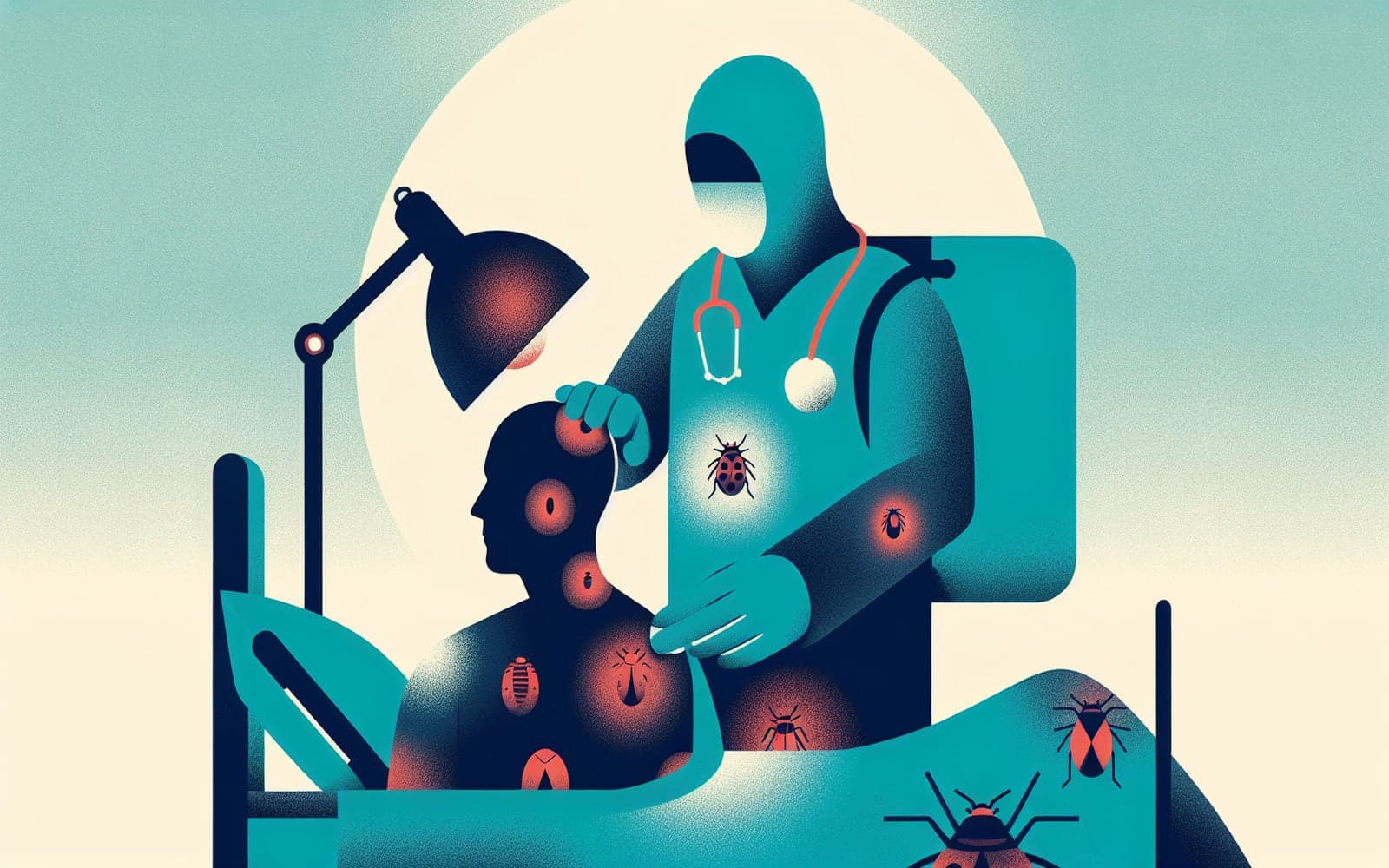Diagnosing Bedbug Bites: When to Suspect and How to Confirm
Published: Jun 19, 2024
Identifying bedbug bites can be tricky, as they often resemble other insect bites or skin conditions. This guide will help you recognize potential bedbug bites and understand the steps to confirm a bedbug infestation.
Contents
Recognizing Potential Bedbug Bites
Bedbug bites typically appear as small, red, itchy bumps on exposed skin areas. They often form a line or cluster, which is sometimes described as a 'breakfast, lunch, and dinner' pattern. However, reactions can vary widely between individuals, with some people showing no visible signs at all.
Differentiating from Other Conditions
Bedbug bites can be mistaken for other insect bites, hives, or even certain skin conditions. Unlike flea bites, which are usually around the ankles, bedbug bites can appear anywhere on exposed skin. They also don't have a central red spot like many spider bites do. If you're unsure, it's best to consult a healthcare provider for a proper diagnosis.

Confirming the Presence of Bedbugs
While bites can suggest bedbugs, confirming their presence is crucial for diagnosis. Look for signs in your sleeping area such as tiny rust-colored spots on sheets (bedbug droppings), shed skins, or live bugs in cracks and crevices. For a definitive diagnosis, it's best to have a professional pest control service inspect your home.
Frequently Asked Questions
Doctors can suspect bedbug bites, but confirming requires finding actual bugs.
Not always, some people may have no reaction to bedbug bites.
Current evidence suggests bedbugs don't transmit diseases to humans.
Bedbug bites can appear immediately or up to 14 days after being bitten.
Key Takeaways
While diagnosing bedbug bites can be challenging, understanding the signs and knowing when to seek help can lead to quicker resolution of the problem.
Unsure about those mysterious bites? Consult with Doctronic, your AI doctor, for guidance on next steps.Related Articles
References
Goddard J, deShazo R. Bed bugs (Cimex lectularius) and clinical consequences of their bites. JAMA 2009; 301:1358.
Cleary CJ, Buchanan D. Diagnosis and management of bedbugs: an emerging U.S. Infestation. Nurse Pract 2004; 29:46.
Always discuss health information with your healthcare provider.

